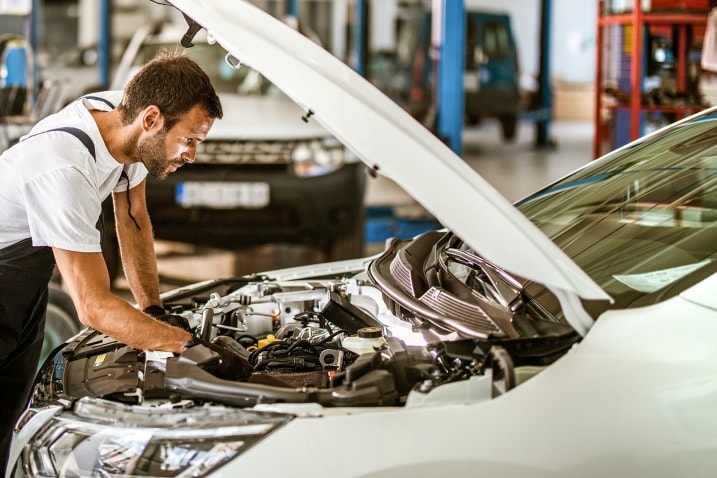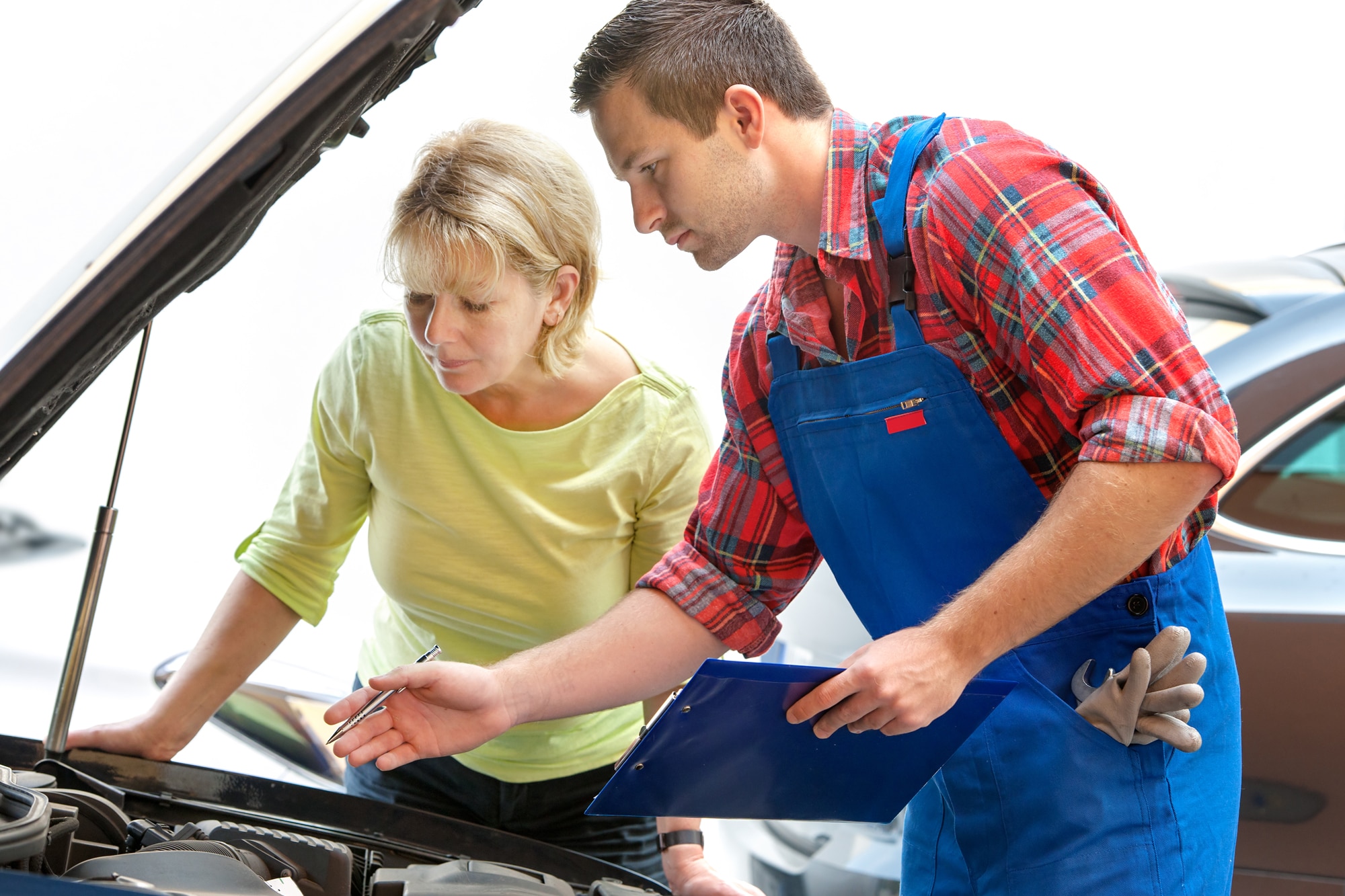All Categories
Featured
A cars and truck getting too hot can be a stressful scenario, specifically if it happens all of a sudden. High engine temperature levels can result in extreme damages otherwise dealt with quickly. Recognizing what to do when your car overheats and comprehending exactly how to stop it can save you from pricey repair services and guarantee your safety and security when traveling.
![]()
What to Do If Your Vehicle Gets too hot. Draw Over Securely. As quickly as you see indications of overheating-- such as vapor increasing from the hood, a spiking temperature level scale, or warning lights-- pull over to a safe place. Transform off the engine immediately to avoid additional damages.
Shut Off the air conditioning and Switch On the Heating system. Transform off the air conditioning to reduce engine lots and button on the heating system if you're not able to draw over right away. This redirects warm far from the engine and into the cabin, which can help reduce the engine temperature level briefly.
Open the Hood (with Care) Wait on the engine to cool off before opening up the hood. Opening it too quickly can subject you to hot vapor or hot liquids. Once it's safe, evaluate the engine for evident indicators of problem, such as dripping coolant or a busted radiator tube.
Check the Coolant Degrees. If you have coolant or water in your lorry, include it to the reservoir or radiator when the engine has cooled down. Stay clear of including cold water to a hot radiator, as it can trigger splitting.
![]()
Require Support. Speak to a tow truck or roadside support if you're unable to settle the problem or identify. Driving with an overheated engine can cause significant damages, such as a blown head gasket or distorted engine components.
How to avoid Your Car from Getting too hot. Check Coolant Levels Frequently. Ensure your automobile always has the appropriate quantity of coolant. Low coolant levels are among the most typical root causes of overheating. Routinely examine the coolant storage tank and leading it off if needed.
Examine Radiator and Hose Pipes. Seek splits, leakages, or loosened links in the radiator and tubes. Replace any kind of damaged parts promptly to prevent coolant leaks.
Maintain Your Air Conditioning System. Flush and refill the cooling system as recommended in your vehicle's owner handbook. In time, old coolant can shed its efficiency and stop working to protect the engine from overheating.
Monitor the Thermostat and Water Pump. A malfunctioning thermostat or water pump can interrupt the cooling system's feature. Have actually these elements evaluated throughout routine upkeep to catch issues early.
Stay Clear Of Straining Your Automobile. Too much weight puts added stress on the engine and air conditioning system. Keep your load within the producer's advised limits.
View the Temperature Level Scale. Pay interest to your temperature scale, specifically during hot weather condition or when driving up steep inclines. If the scale starts to climb up, take precautions such as lowering speed or shutting off the air conditioning.
Conclusion. If you know what actions to take, dealing with an overheated auto does not have to be frustrating. Performing promptly and safely can protect against further damage to your engine. To lessen the risk of getting too hot, remain on top of routine upkeep, check your air conditioning system, and drive properly. With appropriate treatment, you can keep your engine running smoothly and avoid the inconvenience of an overheated vehicle.

What to Do If Your Vehicle Gets too hot. Draw Over Securely. As quickly as you see indications of overheating-- such as vapor increasing from the hood, a spiking temperature level scale, or warning lights-- pull over to a safe place. Transform off the engine immediately to avoid additional damages.
Shut Off the air conditioning and Switch On the Heating system. Transform off the air conditioning to reduce engine lots and button on the heating system if you're not able to draw over right away. This redirects warm far from the engine and into the cabin, which can help reduce the engine temperature level briefly.
Open the Hood (with Care) Wait on the engine to cool off before opening up the hood. Opening it too quickly can subject you to hot vapor or hot liquids. Once it's safe, evaluate the engine for evident indicators of problem, such as dripping coolant or a busted radiator tube.
Check the Coolant Degrees. If you have coolant or water in your lorry, include it to the reservoir or radiator when the engine has cooled down. Stay clear of including cold water to a hot radiator, as it can trigger splitting.

Require Support. Speak to a tow truck or roadside support if you're unable to settle the problem or identify. Driving with an overheated engine can cause significant damages, such as a blown head gasket or distorted engine components.
How to avoid Your Car from Getting too hot. Check Coolant Levels Frequently. Ensure your automobile always has the appropriate quantity of coolant. Low coolant levels are among the most typical root causes of overheating. Routinely examine the coolant storage tank and leading it off if needed.
Examine Radiator and Hose Pipes. Seek splits, leakages, or loosened links in the radiator and tubes. Replace any kind of damaged parts promptly to prevent coolant leaks.
Maintain Your Air Conditioning System. Flush and refill the cooling system as recommended in your vehicle's owner handbook. In time, old coolant can shed its efficiency and stop working to protect the engine from overheating.
Monitor the Thermostat and Water Pump. A malfunctioning thermostat or water pump can interrupt the cooling system's feature. Have actually these elements evaluated throughout routine upkeep to catch issues early.
Stay Clear Of Straining Your Automobile. Too much weight puts added stress on the engine and air conditioning system. Keep your load within the producer's advised limits.
View the Temperature Level Scale. Pay interest to your temperature scale, specifically during hot weather condition or when driving up steep inclines. If the scale starts to climb up, take precautions such as lowering speed or shutting off the air conditioning.
Conclusion. If you know what actions to take, dealing with an overheated auto does not have to be frustrating. Performing promptly and safely can protect against further damage to your engine. To lessen the risk of getting too hot, remain on top of routine upkeep, check your air conditioning system, and drive properly. With appropriate treatment, you can keep your engine running smoothly and avoid the inconvenience of an overheated vehicle.
Latest Posts
Fanatics Sportsbook: The Ultimate Sports Betting Experience
Published Apr 19, 25
1 min read
Laminate Floor Covering: Design Fulfills Longevity at Carpet Interiors Floor & Home
Published Apr 18, 25
2 min read
Discover the Perfect Floor Tile Flooring at Carpet Interiors Floor & Home
Published Apr 18, 25
1 min read
More
Latest Posts
Fanatics Sportsbook: The Ultimate Sports Betting Experience
Published Apr 19, 25
1 min read
Laminate Floor Covering: Design Fulfills Longevity at Carpet Interiors Floor & Home
Published Apr 18, 25
2 min read
Discover the Perfect Floor Tile Flooring at Carpet Interiors Floor & Home
Published Apr 18, 25
1 min read